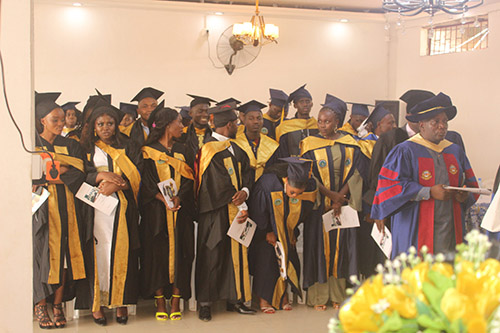Overview
The Mining Engineering (MS) program objective is to help students further widen their knowledge as it applies to the exploration and development of mineral resources and upon the economics of the business of mining.
Mining engineering courses are multidisciplinary, touching upon elements of geology, physics, chemistry, environmental studies, mathematics and economics. You’ll acquire knowledge about the exploration and production of mining processes, including related management and environmental considerations. You’ll gain a thorough understanding of the main areas of the subject, such as geomechanics, ventilation, mine planning and mineral processing. As the degree progresses, you’re likely to focus more on the management and cost estimation side of the subject, as well as surface excavation design and geotechnical engineering.
A total of 120 credit hours of classroom teaching is anticipated. To meet the requirements for the award of master of science Degree program in Mining Engineering by the University of Bamenda (UBa), students are expected to successfully complete all the courses in this program.

Aims:
The programme aims at providing a firm grounding in basic and advanced concepts and modern methods of mining engineering as well as offering a selection of special courses related to developing areas of the subject, particularly those areas of importance to Cameroon.
Objectives:
Following the recent National Development Strategy 2020-2030 for Cameroon with one of the pillars of the strategy being the developing industries and services. Mining, metallurgy and siderurgy in an integral part of the plan for Cameroon to grow up to an emerging country. For this plan to be meet, human resources in the field of mining are highly need. This program will go a long way to help the government achieve the Presidents of the Republics 2035 dream.
In recent years, many investors have been attracted to the mineral industry in Cameroon following the promulgation of favourable minerals and mining laws by the government. Several mining companies, both large and small scale, have been set up and a lot more have acquired prospecting licenses in this country. The viability of this growing industry and the future of Cameroon depend largely on the ability of Mining Engineers to:
• Plan, design and evolve satisfactory solutions to the complex issues associated with mining.
• Operate the mines profitably in the face of the ever-changing global economic and social problems.
• Ensure that the mines are operated in an environmentally friendly manner.
The programme is structured to offer the possibility of continuing education and therefore makes it possible for practicing engineers in the industry to update and upgrade their knowledge and skills in the various areas of specialisation while still on the job.
Outcome
- Learn specialist analytical, design and management skills that are relevant to the mining industry
- Have the opportunity to undertake projects directly linked with industry, which may result in industrial placements for their project period.
- Benefit from excellent links with the local and international minerals industry, and learn alongside a cohort of students from around the world.
- For engineers and geologists already in employment and looking for skills and knowledge enhancement, or geology and engineering graduates keen to specialise in mining, general management and excavation (geotechnics and tunnelling)
Entry Requirements
The following are the requirements applicants should meet in order to be considered for admission:
Applicants for the Master of Science must hold a Bachelor degree in Mining Engineering, Geology, Petroleum, Petrochemical engineering or any other relevant discipline.
